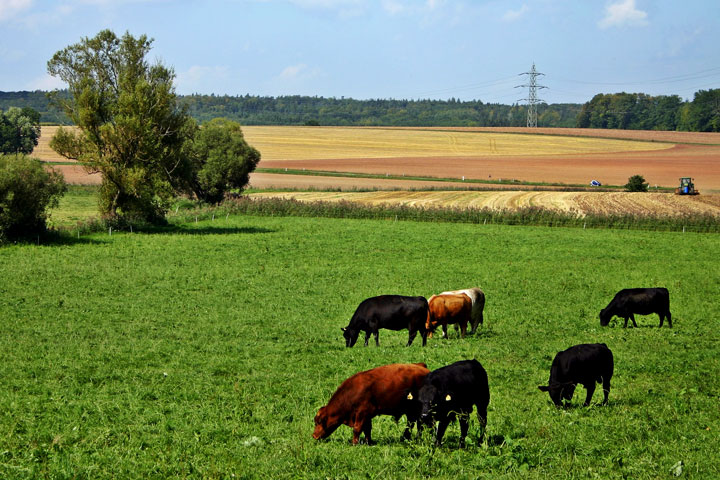Understanding Strategies to Influence Environmentally Effective Dietary Shifts: Development of a Research Agenda
Understanding Strategies to Influence Environmentally Effective Dietary Shifts: Development of a Research Agenda
Understanding Strategies to Influence Environmentally Effective Dietary Shifts: Development of a Research Agenda
Program: Catalyst Grants
Program details » | All Catalyst Grants projects »

Project Team
Andrew Jones - U-M School of Public Health (SPH) (PI)
Martin Heller - U-M School for Environment and Sustainability
Laurie Lachance - U-M of Public Health
Diego Rose - Tulane University
Christina Roberto - University of Pennsylvania
External Partners:
Project Summary
Diet composition is a major determinant of the greenhouse gas emissions and other environmental impacts associated with agriculture and food systems, and proper shifts in the diets of Americans present a substantial opportunity for climate action planning while simultaneously improving nutritional health. For example, new research by co-investigators Heller, Rose, and colleagues (in review) estimates that shifting the 20% of U.S. diets with the largest carbon footprints to diets with an average greenhouse gas intensity would fulfill 10% of the emission reductions necessary to meet 2025 U.S. target levels, as proposed to the UN Framework Convention on Climate Change.
Yet, very little understanding exists as to what might motivate individuals to change dietary behaviors and what might make for effective strategies to influence widespread, environmentally motivated dietary shifts.
In response to this knowledge gap, the project team completed a literature review and convened an interdisciplinary and multi-sector workshop to develop a research agenda to support sustainable diet shifts. The event included academic participants from U-M and beyond with backgrounds in public health, nutrition, psychology, food policy, and industrial ecology; representatives from national and local non-profits; and representatives from UM’s dining services. The World Resources Institute (WRI) is active in promoting diet shifts and participated as a partner both in planning the workshop and in the event itself.
In addition to an internal report summarizing the workshop, immediate outcomes catalyzed by the workshop include changes with dining services at multiple universities and a number of budding research collaborations.
- U-M Dining is interested in sharing WRI's Cool Food Pledge with other Big Ten dining service directors.
- WRI's Cool Food Pledge was also introduced at Tulane University, and a student practicum experience was established to promote vegan and vegetarian options at university dining facilities.
- U-M Dining is re-evaluating how "sustainable/local" food is tracked and calculated.
- Workshop attendees are discussing new research collaborations on a number of topics. These include research on messaging related to meat consumption, understanding how freshman students' diets change when they arrive on campus and using additional data sets to explore more deeply trends and differences in the environmental impact of diets.
Planned next steps include outreach opportunities through major newspapers and online news services as well as an academic journal article aimed at setting the research agenda needed to inform effective intervention strategies. This will, in turn, provide evidence-based guidance for integrating diet shift strategies into climate action planning.
| See: What’s On The Menu For Sustainable Diets? From Research To Action (Graham News) | Eating for the Earth (Michigan Alumnus) |
This project received a $10,000 Catalyst Grant in 2018.